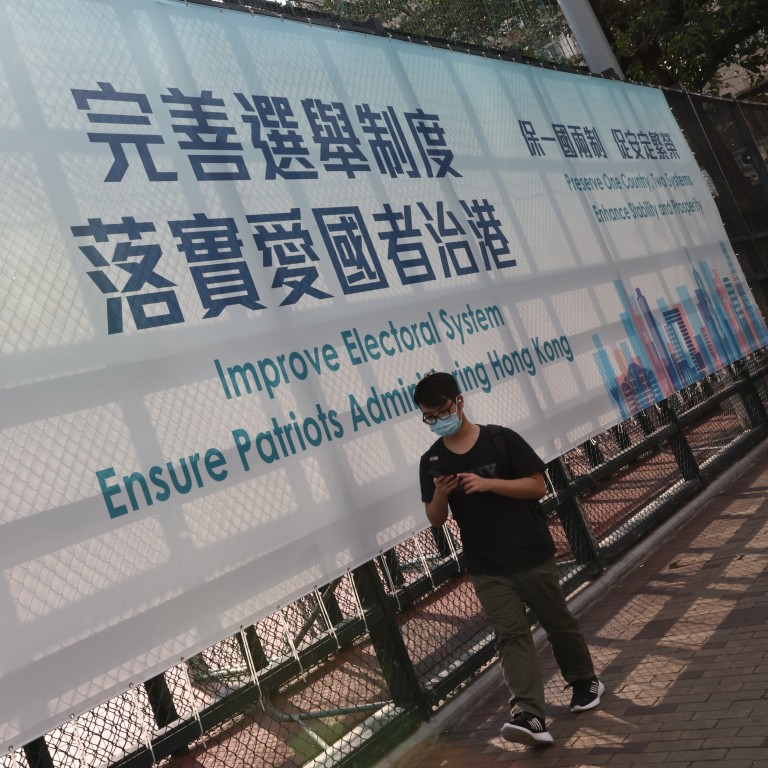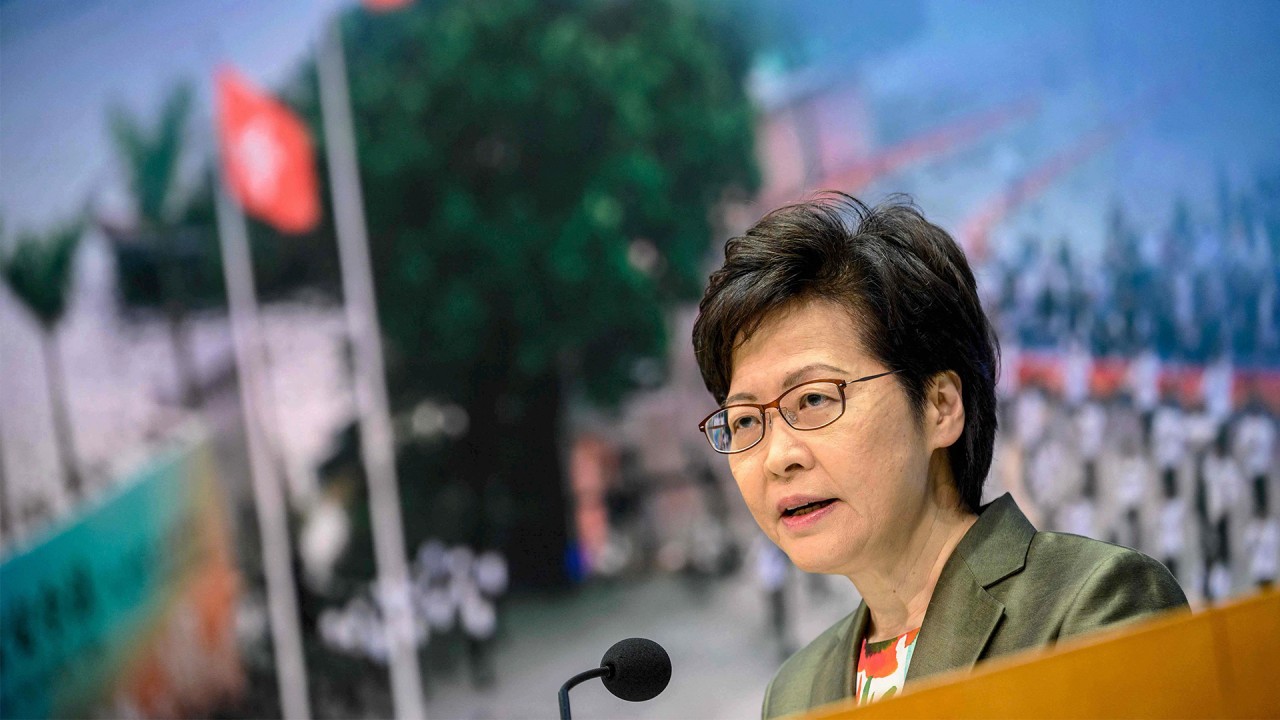
Hong Kong electoral overhaul: corporate voters’ mainland China ties raise concerns over Beijing’s influence on city polls
- At least four bodies with corporate votes for Election Committee members are led by directors based across border and elsewhere
- Corporate voters are not required to be Hong Kong permanent residents, but they must appoint one to cast their ballot
At least four bodies handed corporate votes to elect members of an influential committee tasked with overseeing Hong Kong’s major polls are led by directors based mostly in mainland China, with a few also in Taiwan and the US, an investigation by the Post has found.
One firm given a say in the recently rebranded technology and innovation subsector is headed solely by two mainland directors, one of whom was a senior member of the state-authorised Chinese Academy of Sciences. Two closely related arbitration centres, who have been granted votes in the legal subsector, also have directors hailing from Beijing.
While individual voters in Hong Kong are required to be permanent residents, corporate voters are not, and the discovery shows how the design of the recently reformed 1,500-strong Election Committee, part of Beijing’s plan to impose the principle of “patriots governing Hong Kong”, could renew fears over its dominating influence on the city’s elections.
A close look by the Post at the list of bodies recently granted voting power by the government also prompted accusations that double standards were at play.
At least 14 of the listed bodies have existed for fewer than three years, even though the government made that time frame a general minimum requirement for corporate voters in a move interpreted by some as authorities guarding against opposition union groups that grew out of the 2019 protests.
According to a government spokesman, these companies and organisations, spelled out specifically in the legislation, were exempt from the three-year time limit.
That contrast is further highlighted by the fact some groups secured multiple seats because their sister groups were counted separately.
For example, the China Federation of Literary and Art Circles Hong Kong Member Association – whose director is pro-Beijing tycoon Kenneth Fok Kai-kong – was given 10 seats in the sports, performing arts, culture and publication subsector, through its sister groups such as the Chinese Dancers Association and China Calligraphers Association.
New Hong Kong Election Committee packed with even more Beijing allies
Political scientist Ivan Choy Chi-keung, from Chinese University, suggested this pointed to a lack of “procedural fairness”. He also said he could not understand the rationale behind the way in which these groups were chosen, and said it appeared “to be all motivated by the politics”.
On Tuesday, the government announced its plan to put in place a set of electoral changes outlined by Beijing’s top legislature last month.
Apart from slashing the directly elected seats from 35 to 20 in the now 90-member Legislative Council, the changes will also add 300 seats to the Election Committee and empower it to nominate lawmakers and field representatives to the legislature of its own, on top of its original duty of nominating and electing the chief executive.
Polling for the committee has also drastically changed, and among other things, the individual voting mechanism has been scrapped and replaced by corporate voting in professional sub-sectors where the opposition used to prevail, such as the legal and accounting fields.
While the Post has already reported that Beijing’s proposal had led to two-thirds of representatives from the Election Committee now being either appointed by the authorities or hand-picked by pro-establishment groups, the latest revelations suggest the mainland influence may be even more pronounced.
For instance, the Hong Kong Institute of Science and Innovation of the Chinese Academy of Sciences, which was granted a vote to pick 15 representatives in the new innovation and technology subsector, is led by Cao Jinghua, formerly the head of international cooperation at the academy, and another physicist named Gao Honjun. Both declared their addresses in Beijing, according to the company’s documents.
The institute will have two additional votes in the sector because its Centre for Regenerative Medicine and Health and its Centre for Artificial Intelligence and Robotics were considered separately. The institute itself was only registered in Hong Kong in April of 2019.
Three of the four directors from the China International Economic and Trade Arbitration Commission, which has a vote in the legal subsector, also declared they live in Beijing, while the fourth lives in Hong Kong. The same applies to the China Maritime Arbitration Commission’s Hong Kong Arbitration Centre. The two firms also share the same office address.
The Post has contacted the directors for comment.
Law on blank ballots, polls boycott full of pitfalls, Hong Kong experts warn
Another body, the Society of World Ethnic Chinese Photographers, from the arts subsector, has a range of directors hailing from mainland China, Taiwan and the United States.
There are firms that are younger than three years across a range of subsectors, however most appear in the Chinese fellow townsmen subsector, and a different sector representing Hongkongers on the mainland, carrying a total of 87 newly created seats.
The Federation of HK Shandong Community Organisations was the youngest, having been founded little more than a year ago.
Lau Siu-kai, vice-president of the Chinese Association of Hong Kong and Macau Studies, said the inclusion of groups with strong ties to the mainland emphasised Beijing’s determination to enforce the principle of “one country, two systems”. He shrugged off concerns that mainlanders would be able to influence Hong Kong elections though corporate voting.
“When it comes to the corporate votes, the firm makes a collective decision. Corporate votes are different from individual votes,” he said.
A spokesman from the Constitutional and Mainland Affairs Bureau said the three-year requirement would only be imposed on groups not enlisted by the government according to Annex I and II of the Basic Law, which Beijing amended last month as part of the changes.
“A corporate voter … must appoint an authorised representative for the purpose of casting the body’s vote in an election,” he said, adding that person would have to be a permanent resident.


